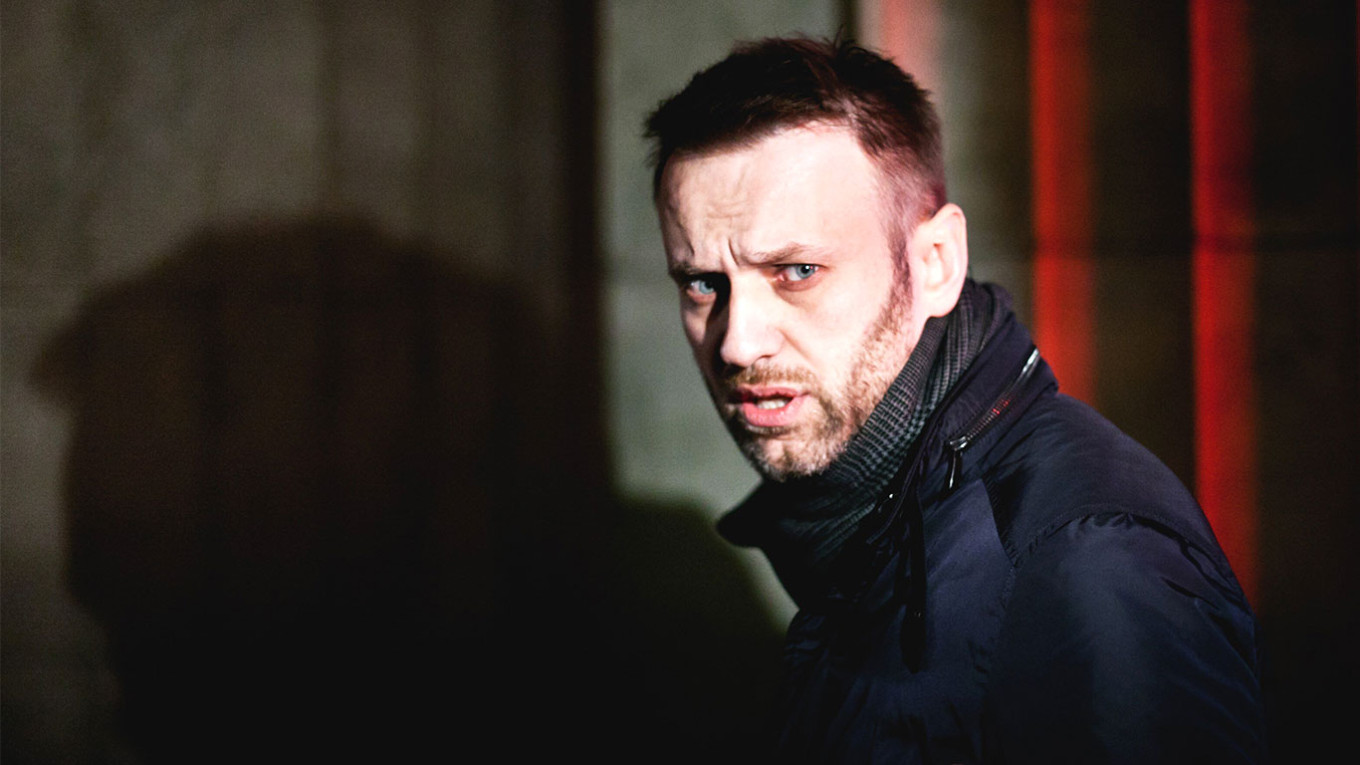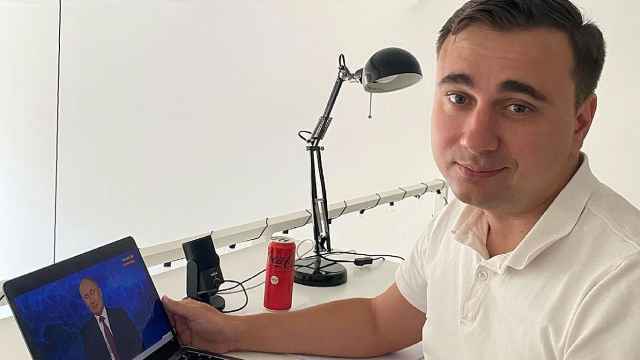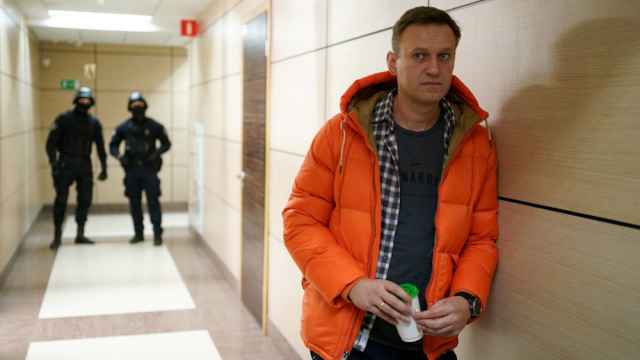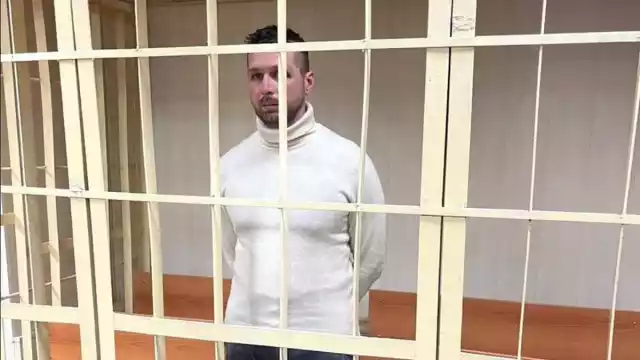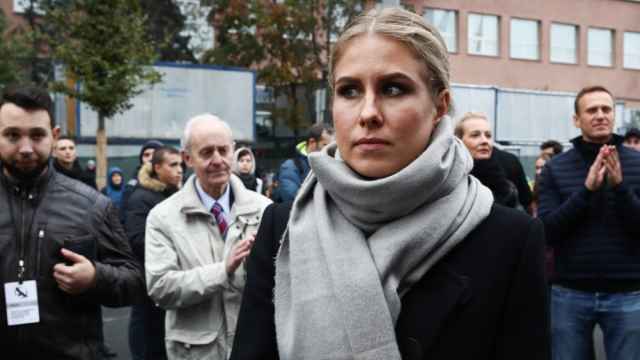Jailed Kremlin critic Alexei Navalny has been missing for over two weeks, with his team saying his health and life could be in danger.
Navalny, 47, has not appeared at a number of scheduled court hearings this month and his lawyers last met with him on Dec. 5, Navalny’s spokesperson Kira Yarmysh told The Moscow Times.
Before he disappeared this month, the anti-corruption campaigner was serving his prison term in the Vladimir region's IK-6 prison east of Moscow.
Navalny's allies linked the timing of his disappearance to President Vladimir Putin's announcement this month to seek re-election in the 2024 presidential race. Ahead of Putin’s reveal, Navalny urged Russians to “vote for any other candidate” besides Putin.
Here are some highlights of Navalny’s arrests and prison terms over the years:
December 2011 — Navalny is arrested for 15 days after speaking at an opposition rally against electoral fraud.
May 2012 — Navalny is arrested for 15 days at a series of protests held to challenge Putin's inauguration for his third presidential term.
2013 — In July, Navalny is sentenced to five years for the criminal embezzlement of the Kirov regional state-run enterprise Kirovles — charges he calls politically motivated. After being freed pending an appeal, he runs in the 2013 Moscow mayoral election.
In September, Navalny receives 27% of the mayoral vote in Moscow against the Kremlin-backed Sergei Sobyanin, who wins with 51% — a result the opposition figure disputes.
In October, his jail term for embezzlement is reduced to a suspended sentence on appeal. The same month, Russian investigators bring new charges against Navalny accusing him of money laundering and fraud from an affiliate of the French cosmetics company Yves Rocher.
February 2014 — Navalny is arrested for seven days at an opposition rally.
December 2014 — Alexei Navalny and his brother Oleg are sentenced to 3.5 years each after being found guilty of stealing money from firms including the Yves Rocher affiliate. While Alexei is handed a suspended sentence, Oleg serves his time behind bars.
February 2015 — Navalny is arrested for 15 days for calls to an unauthorized demonstration.
2016 — Navalny announces his intention to run for president of Russia in 2018.
Feb. 2017 — Navalny is found guilty at a retrial of embezzlement and handed a five-year suspended prison sentence after a Russian court overturns the 2013 verdict and reviews the Kirovles embezzlement case.
2017 — Navalny is arrested for at least 60 days in total at opposition rallies. Months before the 2018 presidential election, Navalny is officially rejected from the ballot by the Central Election Commission due to his conviction. He calls on his supporters to boycott the election in response.
2018 — Navalny is arrested for at least 95 days in total for organizing unauthorized rallies and “violation of the rules for organizing and holding a public event.”
Aug. 20, 2020 — After Navalny becomes ill on a flight from the Siberian city of Tomsk to Moscow, he is taken to an Omsk hospital unconscious and in critical condition and is later evacuated to Germany for treatment. He is later found to have been poisoned with Novichok, a banned military-grade nerve agent designed by the Soviets.
Jan. 17, 2021 — Upon his return to Russia, Navalny is taken into custody for breaching the conditions of his suspended sentence in the Yves Rocher case. As part of his suspended sentence, Navalny had been expected to show up for twice-monthly checks with Russia's prison service until Dec. 30, 2020 — but his poisoning recovery in Germany prevented him from doing so.
Feb. 2, 2021 — A Moscow court sentences Navalny to 2.5 years in prison, swapping his suspended sentence in the Yves Rocher case for a real prison term.
Navalny is also fined on charges of "discrediting the honor and dignity" of a 95-year-old veteran after describing him and others who appeared in a pro-Kremlin video as "the shame of the country," “corrupt lackeys” and "traitors" in a June 2020 tweet.
June 9, 2021 — Navalny’s Anti-Corruption Foundation (FBK) and nationwide political networks are designated as banned “extremist” groups.
March 2022 — Navalny is sentenced to a nine-year prison term on fraud charges after he is found guilty of collecting donations from Russian citizens via his Anti-Corruption Foundation and spending the money on “extremism and personal needs.”
Aug. 4, 2023 — A Moscow court sentences Navalny to 19 years in prison on a string of “extremism” charges, including the financing of extremist activity, publicly inciting extremist activities and "rehabilitating Nazi ideology" that his supporters call an attempt to keep him out of politics. Throughout his prison sentence, Navalny is sent to punitive solitary confinement for a total of at least 220 days, enduring particularly harsh conditions.
December 2023 — Russian authorities press fresh criminal charges against Navalny, accusing him of vandalism. Navalny is removed from the IK-6 prison and taken to an undisclosed location, his team says.
A Message from The Moscow Times:
Dear readers,
We are facing unprecedented challenges. Russia's Prosecutor General's Office has designated The Moscow Times as an "undesirable" organization, criminalizing our work and putting our staff at risk of prosecution. This follows our earlier unjust labeling as a "foreign agent."
These actions are direct attempts to silence independent journalism in Russia. The authorities claim our work "discredits the decisions of the Russian leadership." We see things differently: we strive to provide accurate, unbiased reporting on Russia.
We, the journalists of The Moscow Times, refuse to be silenced. But to continue our work, we need your help.
Your support, no matter how small, makes a world of difference. If you can, please support us monthly starting from just $2. It's quick to set up, and every contribution makes a significant impact.
By supporting The Moscow Times, you're defending open, independent journalism in the face of repression. Thank you for standing with us.
Remind me later.


